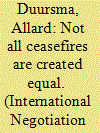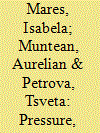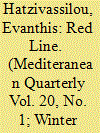| Srl | Item |
| 1 |
ID:
180891


|
|
|
|
|
| Summary/Abstract |
Past research has found that third party pressure makes the signing of a ceasefire more likely, but also more likely to break down. What explains this variation? I argue that third party pressure is more likely to lead to a durable ceasefire if pressure is applied to persuade the conflict parties to continue to negotiate and produce a detailed ceasefire document, whereas pressure solely aimed at making the conflict parties sign a ceasefire document undermines the durability of the ceasefire. A comparison of four ceasefires concluded in Sudan supports this argument. Third party pressure that led to the Nuba Mountains Ceasefire and the Agreement on Security Arrangements helped move the negotiations on security arrangements forward. By contrast, the N’Djamena Ceasefire Agreement and the Darfur Peace Agreement were imposed on the parties without regard for political and technical aspects of the ceasefire. This explains why violence soon resumed.
|
|
|
|
|
|
|
|
|
|
|
|
|
|
|
|
| 2 |
ID:
155307


|
|
|
|
|
| Summary/Abstract |
This article examines the mix of non-programmatic strategies used by politicians to gain voter support in contemporary Eastern Europe. We use a mixed-method design that combines survey-based experiments and qualitative research in a paired comparison of localities in Romania and Bulgaria. Our article documents that the mix of clientelistic strategies differs across localities with different turnover rates. In both Romania and Bulgaria, we find that the use of clientelistic strategies that politicise state resources is higher in localities with long-term political incumbents.
|
|
|
|
|
|
|
|
|
|
|
|
|
|
|
|
| 3 |
ID:
087848


|
|
|
|
|
| Publication |
2009.
|
| Summary/Abstract |
The negotiating position of an international player is strengthened when it can persuade third parties that it has reached the limits of its concessions. However, from 1945 to 2004 the Greek side (both Athens and Nicosia) managed convincingly to convey this message to the international community only twice: in 1958, prior to the conclusion of the agreements for Cypriot independence, and in 2004, when the Annan Plan was rejected by the Greek-Cypriot community. This failure of the Greek side should be attributed to a combination of maximalism, lack of accurate assessments of the interests and objectives of other actors, and lack of consistency in Greek discourse.
|
|
|
|
|
|
|
|
|
|
|
|
|
|
|
|